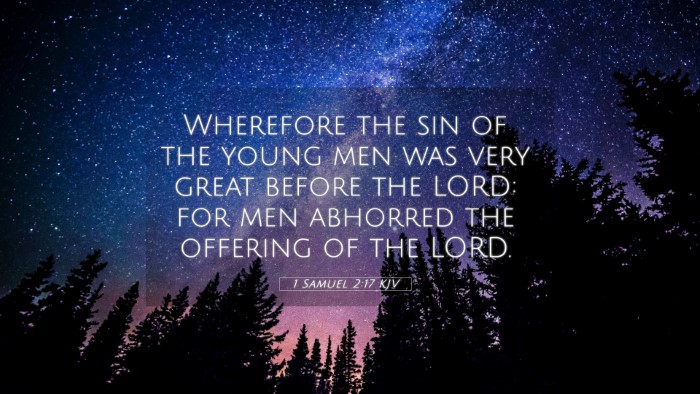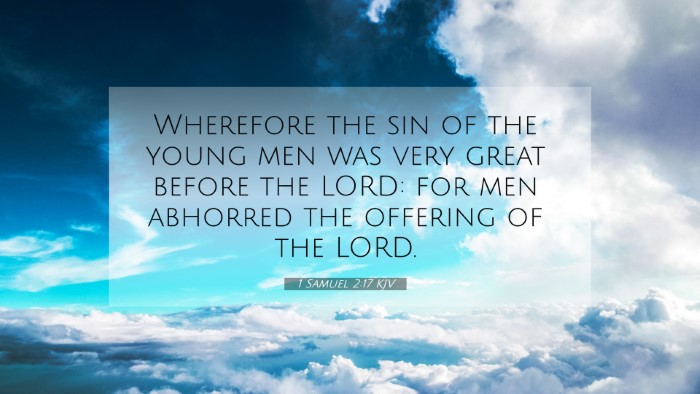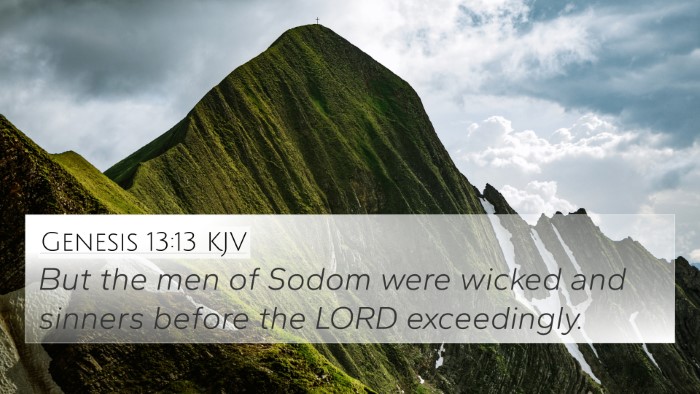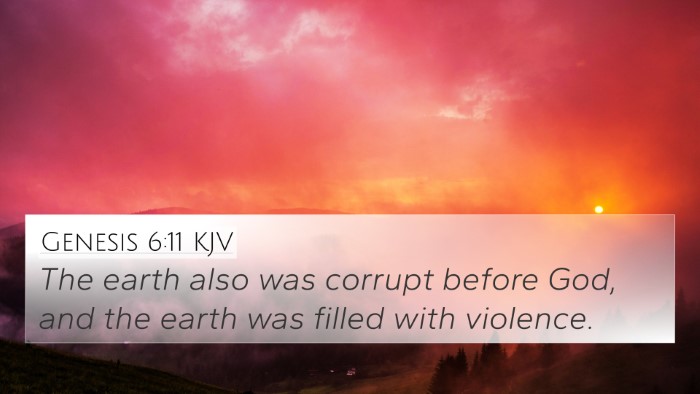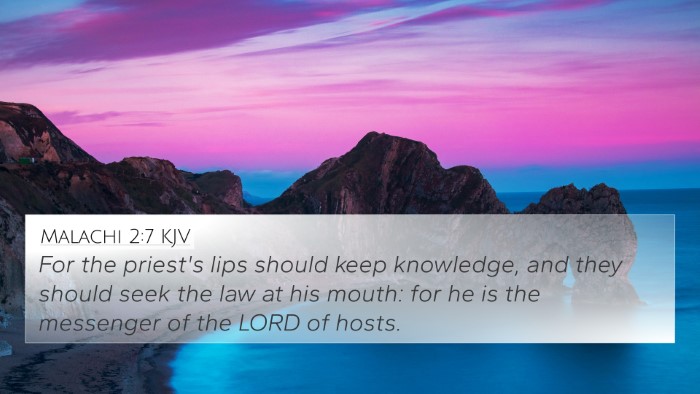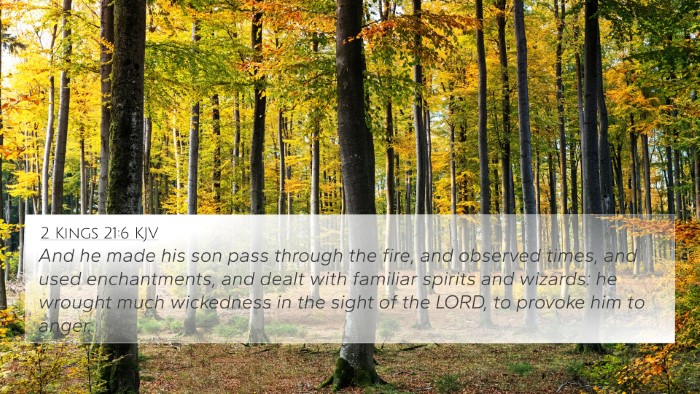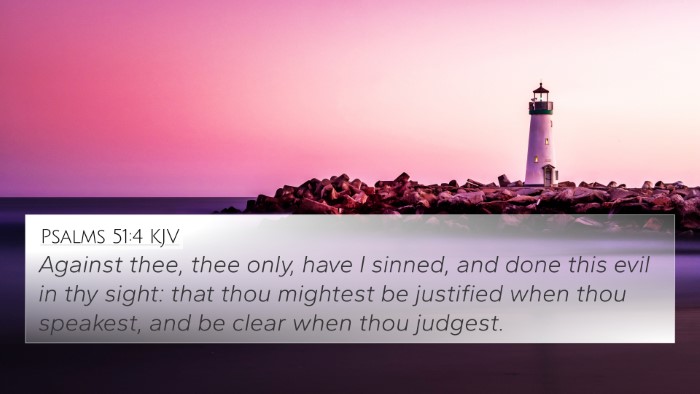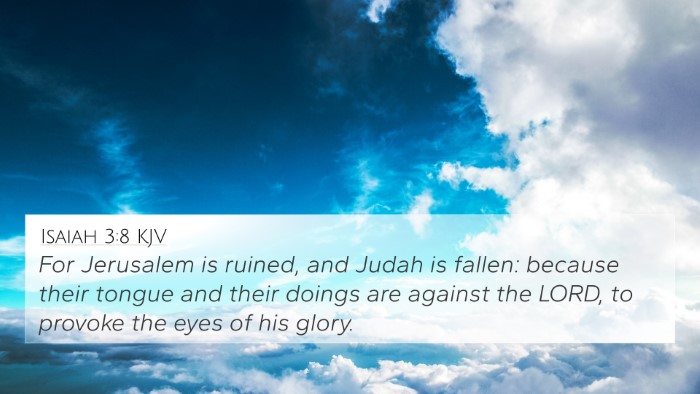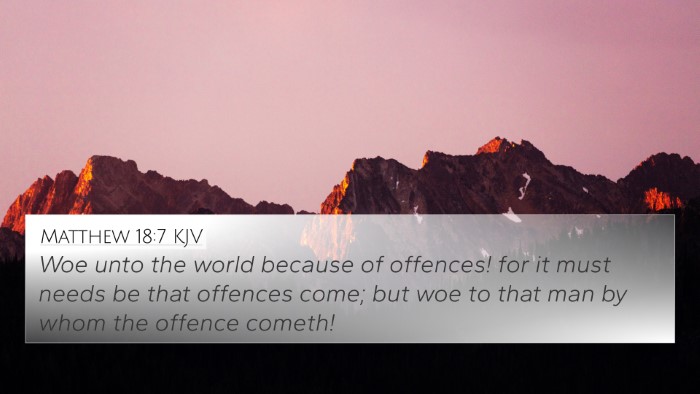Understanding 1 Samuel 2:17
1 Samuel 2:17 states: "And the sin of the young men was very great before the Lord: for men abhorred the offering of the Lord." This verse addresses the grievous misconduct of Eli's sons, Hophni and Phinehas, who served as priests but abused their authority and the sacrificial offerings made to God.
Summary of Insights from Public Domain Commentaries
Multiple commentaries provide rich insights into this verse, noting the theological and moral implications of the actions of Eli's sons. Here, we summarize these insights to deepen understanding.
-
Matthew Henry: Henry highlights the severity of the sins committed by Hophni and Phinehas, pointing to their sacrilegious attitude towards the offerings and how their behavior led to the people’s disdain for worship. He emphasizes that their actions were not merely personal failings but represented a systemic issue within the priesthood of Israel.
-
Albert Barnes: Barnes underscores the idea that the young men’s actions provoked the anger of the Lord. He indicates that these actions were a direct violation of God's commandments regarding worship and sacrifice. The interpretation warns that neglecting divine instructions leads to spiritual degradation and consequences.
-
Adam Clarke: Clarke gives a detailed analysis on the nature of the offenses, suggesting that they were grounded in greed and a misuse of power. He points to the larger narrative, indicating that their actions contributed to the downfall of their family's priesthood and the eventual judgment of God upon Israel’s leaders.
Thematic Connections
The verse reveals critical themes that resonate throughout scripture, especially concerning spiritual integrity, the sanctity of worship, and divine judgment. The issues raised in 1 Samuel 2:17 have parallels in various other biblical texts.
-
1 Kings 14:10-11: These verses counsel against the sinful actions of priests and the ensuing judgment from God, reflecting on the consequences of corruption in worship practices.
-
Malachi 1:6-8: Discusses dishonoring God through improper offerings, showing a continuation of concern for the proper reverence due to God.
-
Hebrews 10:28-29: This New Testament text speaks to the severity of despising God's covenant, highlighting the continuity of the theme of honoring the sacrificial system instituted by God.
-
Leviticus 10:1-2: Discusses the severe punishment for Nadab and Abihu’s unauthorized offerings, drawing a parallel to Hophni and Phinehas's actions and the judgment that follows.
-
Titus 1:11: Addresses the importance of holding fast to sound doctrine, with implications that the failures in leadership lead to turmoil amongst God’s people.
-
Luke 10:16: Jesus states how those who hear the message of God are accountable, linking to the accountability of the priests in 1 Samuel.
-
James 3:1: Reminds that teachers and leaders will be judged more strictly, correlating with the judgment faced by Eli’s sons for their actions.
Bible Verse Cross-References
Understanding 1 Samuel 2:17 can be enhanced by connecting it with other scriptures. Below are some suggested cross-references that present connections and deepen comprehension:
- Exodus 30:9 – Prohibition against offering unauthorized incense.
- Deuteronomy 17:12 – The consequences for those who do not heed the law set forth by priests.
- Proverbs 15:8 – Contrasting the offerings of the wicked versus the upright.
- Jeremiah 6:20 – The Lord questions the sincerity of worship amid wrongdoing.
- Matthew 23:16-22 – Jesus denounces the corrupt practices of religious leaders.
Conclusion
1 Samuel 2:17 serves as a crucial reminder of the gravity of our worship and the sincere intent behind our offerings to God. The actions of Eli's sons indicate that disregarding God’s command leads to serious repercussions, a theme consistent across both the Old and New Testaments. Through proper cross-referencing of these Biblical texts, believers can uncover deeper meanings and reflect on the importance of spiritual integrity, accountability, and the reverence owed to God in worship practices.

